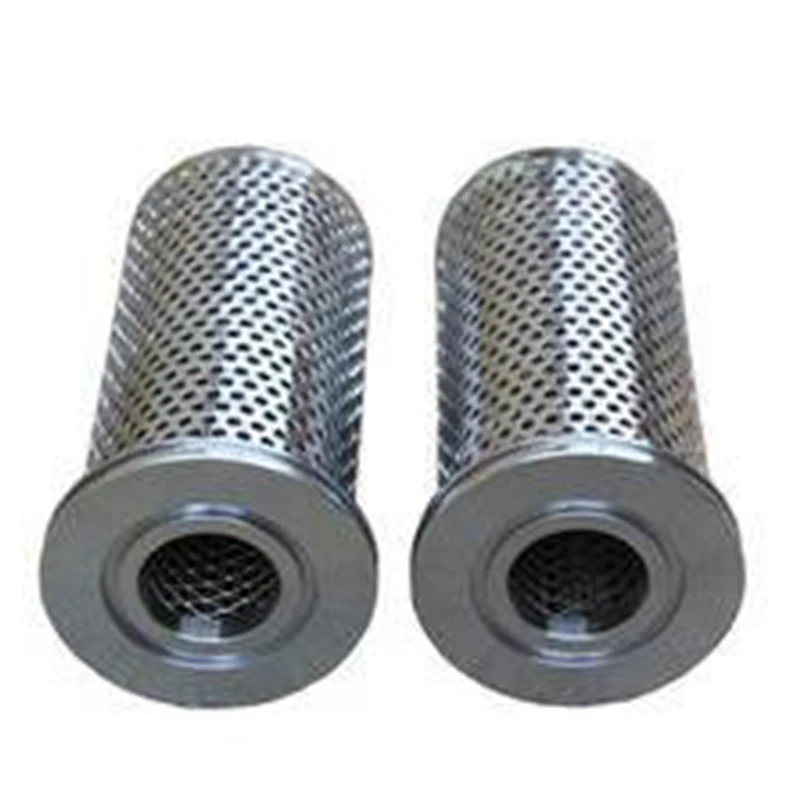 Tel:
+8615930870079
Tel:
+8615930870079
oct. . 13, 2024 07:37 Back to list
Metal Filter Element for Enhanced Filtration and Durability in Various Applications
Understanding Metal Filter Elements A Comprehensive Overview
In various industrial applications, filter elements play a crucial role in maintaining efficiency and ensuring the quality of processes. Among the different types of filter elements available, metal filter elements stand out due to their unique properties and advantages. This article explores the fundamental aspects, benefits, and applications of metal filter elements in various industries.
What are Metal Filter Elements?
Metal filter elements are devices used to remove contaminants from liquids and gases, typically constructed from materials such as stainless steel, titanium, or various alloys. These materials not only enhance the filter's durability but also make them suitable for high-temperature and high-pressure applications. The filters function by trapping solid particles, dirt, and other impurities within their structure, thus purifying the fluid that flows through them.
Advantages of Metal Filter Elements
1. Durability and Longevity One of the primary benefits of metal filter elements is their robust construction. Unlike their paper or synthetic counterparts, metal filters can withstand harsh conditions, including extreme temperatures and corrosive environments. This durability translates into longer service life, reducing the need for frequent replacements.
2. High Filtration Efficiency Metal filters often feature fine pore structures that enable them to capture very small particles. This high level of filtration efficiency is essential in industries like pharmaceuticals, food and beverage processing, and aerospace, where product purity is paramount.
3. Cleanability and Reusability Metal filter elements can be cleaned using various methods, such as backwashing, ultrasonic cleaning, or chemical cleaning. This ability to restore the filter’s functionality means lower operational costs and reduced waste, as the filters can be reused multiple times.
4. Increased Flow Rates Due to their design, metal filters generally allow for higher flow rates compared to other types. This characteristic is crucial in applications where maintaining process efficiency is essential, such as in high-volume liquid processing or gas filtration.
5. Versatility Metal filter elements can be designed to meet specific process requirements. They can be manufactured in different sizes, shapes, and filtration grades, making them suitable for a wide range of applications, from industrial to automotive uses.
metal filter element

Applications of Metal Filter Elements
Metal filter elements are utilized in various sectors due to their advantageous properties. Here are some notable applications
- Oil and Gas Industry In this sector, metal filters are used to remove solid contaminants from crude oil and natural gas. They help protect downstream equipment from damage caused by impurities and maintain operational efficiency.
- Pharmaceuticals The stringent purity standards in the pharmaceutical industry demand high-performance filtration solutions. Metal filters ensure that process liquids are free from particulates, thus ensuring the quality of end products.
- Food and Beverage Metal filter elements are commonly used to safeguard the cleanliness of water and other liquids used in food processing. Their ability to withstand high temperatures also allows them to be utilized in heat exchange processes.
- Aerospace and Defense Filtration in aerospace applications is critical for both performance and safety. Metal filters are employed in fuel systems and hydraulic fluid applications to ensure the reliability of aerospace components.
- Automotive In automotive manufacturing, metal filters are used in fuel and lubrication systems to enhance engine performance and longevity by ensuring that contaminants are removed efficiently.
Conclusion
Metal filter elements represent a vital component in various industries, providing durability, efficiency, and high-performance filtration solutions. As industries continue to seek improved processes and sustainability, the role of metal filter elements will only become more significant. With their myriad of benefits, they serve not only to purify liquids and gases but also to enhance the overall quality and safety of products across different sectors. As such, selecting the right metal filter element is crucial for optimizing operational efficiency and ensuring compliance with industry standards.
-
Types and Applications of Air Filtration CartridgesNewsJul.28,2025
-
The Role of Gas Turbine FiltersNewsJul.28,2025
-
Mastering Air Filter Cartridge UseNewsJul.28,2025
-
Advanced Turbine Filters for Modern Gas TurbinesNewsJul.28,2025
-
Cellulose Air Filter Cartridge Advantages in Dust FiltrationNewsJul.28,2025
-
Cellulose Filters for Air Particle ReductionNewsJul.28,2025

 Email:
Email:





